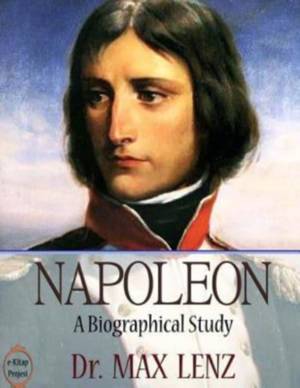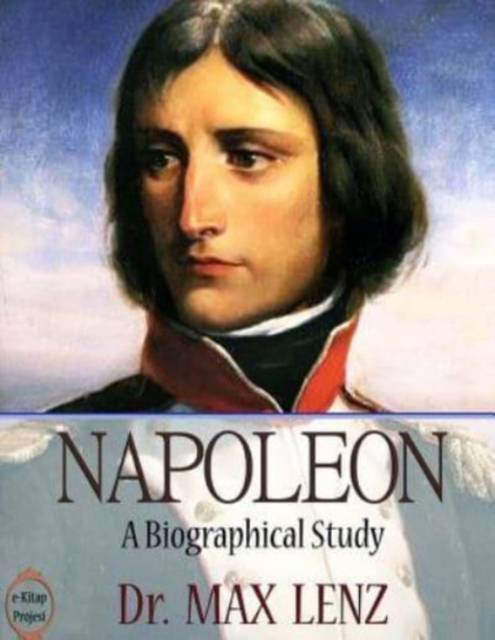
- Retrait gratuit dans votre magasin Club
- 7.000.000 titres dans notre catalogue
- Payer en toute sécurité
- Toujours un magasin près de chez vous
- Retrait gratuit dans votre magasin Club
- 7.000.0000 titres dans notre catalogue
- Payer en toute sécurité
- Toujours un magasin près de chez vous
Description
I WAS born when my country was dying "-that is how Napoleon himself, with equal force and brevity, has pointed to the moment in which he came into the world. For on the 9th of May, I 769, Pasquale Paoli, with the Corsican militia, had taken the field against the French for the last time; not long afterwards an English ship conveyed the defeated general to Naples, and that was the end of the freedom of Corsica. It was on the I sth of August in the same year, the feast of the Assumption, that Lretitia Ramolino, the young and beautiful wife of Carlo Buonaparte, gave birth to her illustrious son.These words were addressed to no less a personage than Paoli himself, then an exile in England. They formed the first line of the first letter that the young Buonaparte ever wrote to the hero of Corsica, whom he regarded as the incarnation of patriotism; he wrote it on the 12th of June, I789; that is to say, in the hour when France, who had robbed Corsica of her freedom, was herself on the brink of disaster.The States General, called together by the King, had been assembled at Versailles since May, and on the 1oth of June the Abbe Sieves, the leader of the Third Estate, had called upon its representatives to constitute themselves the government of the country. There can be no better indication, however, of the whole colouring of Napoleon's mind from early boyhood than this pithy sentence in which the lion's claw, the Emperor's hand, reveals itself. He was not yet twenty years old, and since his tenth year he had been in France and had worn the King's uniform. His whole environment and the atmosphere in which he lived had been French; he wrote and spoke French, he had almost forgotten the Corsican dialect. But all this had not weakened, it had rather served to stimulate and intensify his Corsican instincts. Every word of his that has come down to us from that period of his life points to the one emotion: the desire to win back his country's freedom, together with an inextinguishable hatred against the conqueror. "Thirty thousand Frenchmen," he goes on to say, "vomited out on our coast, flooding the throne of freedom with rivers of blood-that was the hateful scene first given to my eyes. The cries of the dying, the tears of the hopeless, surrounded my cradle from the moment of my birth.The Buonapartes, like all their fellow-countrymen, had fought with Paoli for the liberties of their fatherland. Carlo Buonaparte, Napoleon's father, had been a member of the National Assembly which had stood by the Dictator; he was a well-educated man and had acted as Paoli's secretary. It was he who penned the eloquent proclamation in which the General summoned the Corsicans to their last fight. His wife Lretitia had gone with him into camp, and was present with him at the last battle; Carlo, however, did not accompany his leader into exile: like most of the other Corsicans, including all his own relatives, he remained at home at Ajaccio and strove to accommodate himself to the new condition of things. The family, which had many branches, all of which clung together, was one of the most respected in the island, but not one of the richest.A house in the town, a couple of farm-houses with some meadows and vineyards hard by as well as a little farther away among the hills, constituted the sum of Carlo Buonaparte's property. He was obliged therefore, in course of time, as the number of his children increased, to ingratiate himself with the conquerors in order to better his fortunes. His natural ability, together with his French education and the good repute of his family, helped him in this. After he had taken his doctor's degree at Pisa, shortly after the birth of Napoleon, he was appointed a magistrate and was twice sent to the French Court, first in I 776 and then in I 778, as a representative of the Corsican nobility.
Spécifications
Parties prenantes
- Auteur(s) :
- Traducteur(s):
- Editeur:
Contenu
- Nombre de pages :
- 396
- Langue:
- Anglais
Caractéristiques
- EAN:
- 9781508895879
- Date de parution :
- 16-03-15
- Format:
- Livre broché
- Format numérique:
- Trade paperback (VS)
- Dimensions :
- 216 mm x 279 mm
- Poids :
- 915 g

Les avis
Nous publions uniquement les avis qui respectent les conditions requises. Consultez nos conditions pour les avis.






